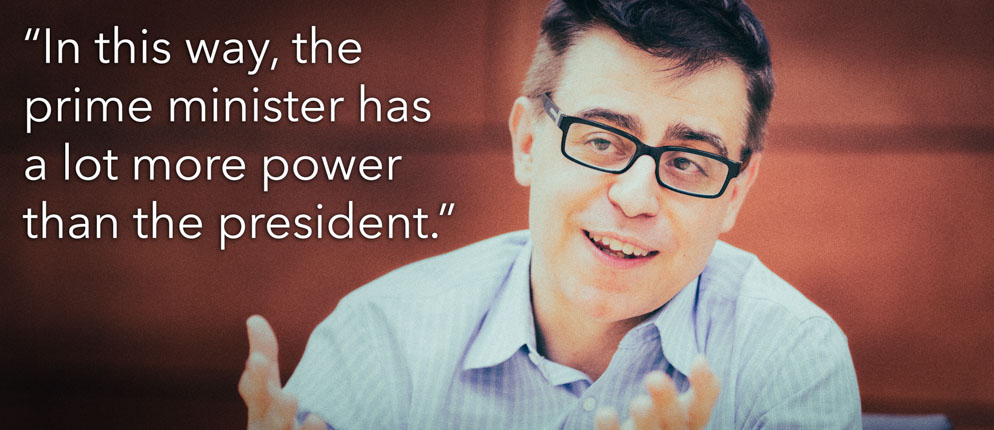
And why we should see the good in our ‘elitist democracy’
We all know that Mark Carney isn’t really a rock star. But in the world of high-profile central bankers, he certainly comes close.
During the global financial crisis of 2008, at which time Carney was the governor of the Bank of Canada, we watched two nations – Canada and the United States – who share so much in common, have such vastly different experiences. The American experience, as we witnessed, was far worse. We watched their federal government bail out their banks, and we’ve seen regulatory reforms put in place since.
That never happened in Canada – at least not to the same extent.
Canada has become an example of what to do. But what did we do? Given our monetary policy is so similar to that of the U.S., how is it that we fared so much better? What is the difference?
Earlier this month, Dr. George Bragues, assistant vice-provost and program head of business at UofGH, addressed economists from across Canada and the U.S. at a conference run by the Wirth Institute for Austrian and Central European Studies. There, he shared his ideas on this financial puzzle that could hold valuable lessons for future policies.
In Conversation with Dr. George Bragues
Much analysis points to interest rates as being key to this crisis. These, being controlled by the country’s central bank. Many believe it was the excessively low rates that caused the most damage – which we both shared heading into it. So what’s the key to this puzzle?
The answer lies in politics. We need to look at the political regime in which the banking system is structured – and how banks have come to be regulated differently in Canada versus the U.S.
You mean differences in our democratic regimes.
There’s never a perfect democracy – meaning every single decision reflects the will of the majority. And yes, both are democratic at the end of the day. But the extent to which the majority exercises power on different policies, is different in these two countries.
A quick look into the history. Canada was set up later than the U.S. Specifically, after the American Civil War. And so our founding fathers could look to the U.S. for examples of things not to do. One of which – and what they believed to have caused the Civil War - had to do with the fact that authority was too decentralized. That the states had too much power.
In the U.S., you had the individual states setting up their own banks. Thousands of banks emerged as a result, even laws prohibiting banks from other states to enter. Drive through Florida, and you’ll see what I mean. But here, you’ve really only got the Big 5.
This has to do with the fact that Canada built a system in which the federal government would have more power than the provinces. That was felt in banking because in the Canadian Constitution, banking was made a federal concern. This was not the case in the U.S. Banking was never assigned to the federal government – only money was.
In the U.S., the states had more power. In Canada, the federal government. In this way, the prime minister has a lot more power than the president.

Now enter an inherent problem with democracy.
The problem you run into, is that politicians have a strong incentive to respond to the voters’ desires. And who are the majority of voters? Debters – or people who borrow from banks. Only a small group of voters actually have enough money to be the lenders.
So democracy will tend to favour the interests of the borrowers versus the lenders.
Here in Canada, we have a much more elitist system. Because of this kind of symbiosis between the banks and the government, the banks have had much more influence on the policy towards them. And that meant they didn’t have to take as many risks in their lending.
In the U.S., however, there were many more points of access for special interest groups to impact policy. You could say, it’s much more democratic. A system much more subject to lobbying from a variety of interest groups – not simply the banks. And so the system there has always been more vulnerable to crisis.
So heading into the crisis, because of the role of special interest groups, the political system effectively directed the banks to make riskier loans to people with lower credit scores.
Because Canada is less democratic, the interests of borrowers never tilted the financial system, the way they did in the U.S. And as a result of that tilt, loans were made there for mortgages to people that otherwise wouldn’t be getting loans.
And we all saw what happened.
Democracy is not a perfect regime. And founders of both Canada and the U.S. knew that. But it’s the best practicable regime we’ve got – as long as we’re aware of its shortcomings.

